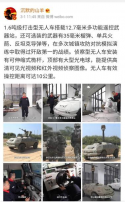Russia's surprisingly poor information warfare and cyber capabilities has shown me avenues where the PLA could do a much better job than Russia. Specifically, I've been thinking about how AI could be applied to warfare beyond the obvious logistical planning, wargaming, developing tactics in simulations, object recognition, etc. One idea struck me that might seem faintly ridiculous but stay with me for a second: deepfakes.
There are two kinds of cyberattacks, broadly speaking: the disruptive kind where you try to destroy enemy infrastructure (the first iconic example being Stuxnet). The other kind is more subtle and insidious, aimed at poisoning the well from which the enemy draws battlefield information. If the latter kind is done right, the enemy should not even know that an attack occurred until it's too late. For example, suppose a US ELINT aircraft is assisting RoC forces during a PLA attack on Taiwan - given the intelligence assistance the US has been feeding the Ukrainians, this is not at all far fetched. Now, PLA SIGINT could pick up this transmission and use AI-driven software to generate messages using the ELINT comms operators' faked voices (technology that exists ).
You can imagine, of course, the fun that can be had with this. You can lead units into ambushes, divert reinforcements away during critical operations, mask the PLA's movements. You can sow complete chaos in the RoC's ranks if you compromise their communications and start injecting deepfaked audio messages, which is why it's important to have spies and saboteurs embedded in the RoC long before any hostilities start. If this is done extensively enough, the RoC will be rendered completely ineffective as a fighting force because no soldier can believe any information he's getting. The well is completely poisoned.
Once the PLA is in, it's not that hard to give the RoC... .
What you said requires breaking enemy encryption first, which is arguably much harder than the deepfake part...
Deepfake could have a much bigger role in PsyOp though, look at the amount of fabrication coming out of this war, imagine what more advanced DeepFake technology can do in the future... I don't want to live in the matrix man

